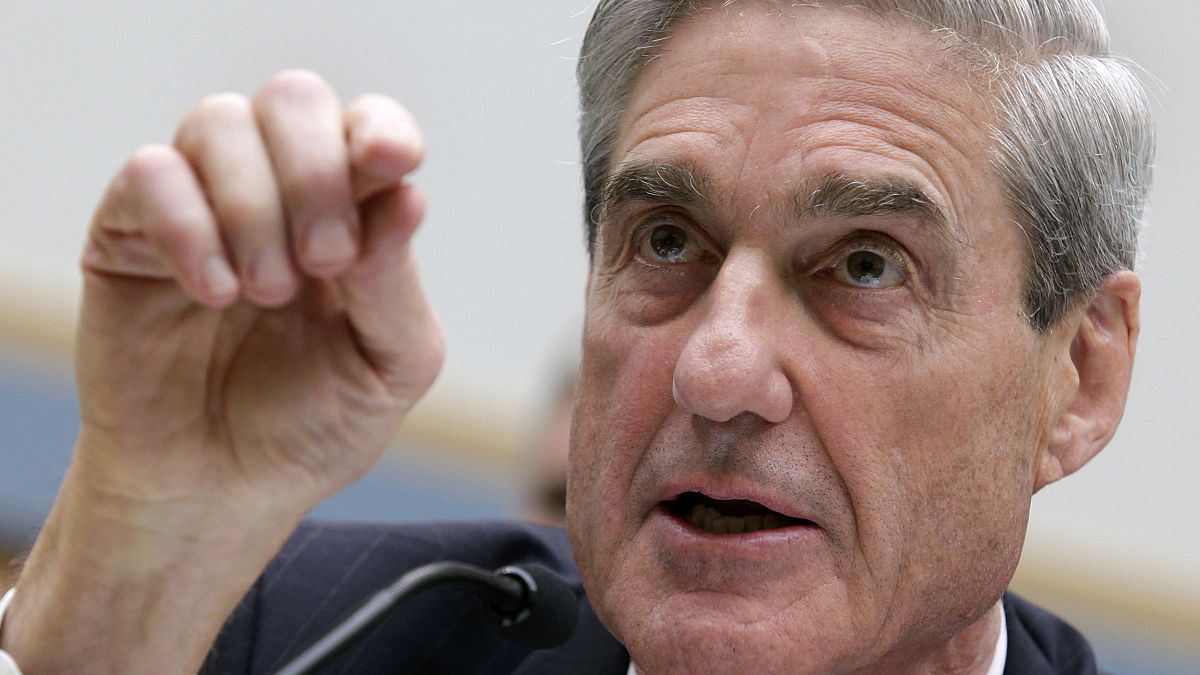If encouraging foreign election interference is legal as long as you don't directly participate in it, that isn't good for democracy.
On Thursday, after weeks of waiting, we finally get to see the Special Counsel Robert Mueller's report — at least the parts Attorney General William Barr does not redact. The details may not read like a spy thriller, but there will definitely be breathless headlines and endless commentary about each new revelation. However juicy those details prove to be, though, keep your eye on whether the report confirms all the terrible things we have already heard.
Top Republicans have spent the last few weeks claiming the whole “Russiagate” issue is settled, and that because Barr has told us Mueller won’t bring more criminal indictments, there’s “no collusion.” But whatever that means — “collusion” is an imprecise, non-legal term — it does not mean everything is fine.
To understand why, consider Mueller’s mission: He was charged with determining if there were "any links and/or coordination between the Russian government and individuals associated with the campaign of President Donald Trump," looking into "any matters that arose or may arise directly from the investigation" and, if "necessary and appropriate," allowed to "prosecute federal crimes arising from the investigation of these matters." In other words, he was conducting both a legal investigation to see what crimes were committed, and a counterintelligence investigation to see if our national security was, or is, compromised.
Beyond a reasonable doubt
Barr's summary of the report and subsequent testimony to Congress has told us only that, on the legal front, Mueller did not find enough evidence to establish that anyone on the Trump campaign conspired with those behind either the Russian disinformation campaign or its hacking efforts. That appears to be true: None of the evidence we have seen so far adds up to proof of conspiracy beyond a reasonable doubt.
But if that’s true, it only establishes that Russia conducted its Facebook stunts and its hacking efforts without help from the Trump campaign, and similarly that Russia did not help the Trump campaign with its operations. It does not answer the larger questions of why Trump took pro-Putin actions as a candidate and as president: to reciprocate Russia’s "help" winning the election; as part of a larger Trump Organization business strategy; because Putin has dirt on Trump (or because Trump thinks he might); or just because Trump admires Putin.
The fact is, even before Mueller’s report, we have seen plenty to keep counterintelligence professionals up at night. We know that Putin’s intelligence services ran a massive operation using stolen emails and deceptive social media to help elect Trump. Some people on Trump’s team knew about their operation before it was public and, rather than telling authorities, Trump’s team apparently kept their mouths shut. Trump then sowed doubt by denying Putin helped him, first suggesting that the hacking could be blamed on a guy in his mother’s basement, and later claiming to believe Putin’s denials.
'Russia, if you're listening'
Trump openly encouraged (even if jokingly) Russia to hack Hillary Clinton’s email during the 2016 campaign, famously saying “Russia, if you’re listening…” His team met with Russian operatives in Trump Tower during the campaign after the latter offered dirt on Clinton. Trump also repeatedly praised Putin and criticized NATO over the course of 2016 and thereafter, and even changed the GOP convention platform in a pro-Russia direction — signalling Trump’s willingness to support Putin-friendly policies if he won.
Trump’s team also reportedly had more than 100 confidential contacts with Putin’s team before his inauguration, the details of only a few of which we know — like Michael Flynn discussing sanctions Obama was then put into place.
Around the same time, both soon-to-be national security advisor Michael Flynn and Jared Kushner tried to set up new back channels with Russia, hidden from U.S. intelligence. Media exposure and Flynn’s indictment quickly made it too politically dangerous for the administration to push through more pro-Putin policies, but the initial efforts were clear and extraordinary.
The first giant question we need the Mueller report to answer, then, is simply whether the reporting we have seen so far is accurate. If it is, then Trump did not just happen to support pro-Putin policies and passively accept Russia’s help; Trump did his level best to encourage, hide and eventually reward the Russians’ illegal election interference. You can call that “collusion” or argue that it’s not, but it is hard to argue that it’s okay.
Consider the enormous implications of this. If that tacit quid pro quo is illegal, then the president must be removed from office. But if encouraging foreign election interference is legal as long as you don't directly participate in it, that’s worse: It means that presidential campaigns can legally encourage foreign countries — even hostile ones — to help them win the White House. That cannot become the new normal in our political campaigns.
Another question that Mueller’s report might help answer is, if team Trump and team Putin were in contact over 100 times while both were running huge operations to elect Trump, what they were talking about.
There will be a lot to discuss on Thursday, even with the redactions. But no matter how much the president crows that he's been vindicated, remember how much we didn't need Mueller to reveal, and how frighteningly little Republicans seem to care.
John Neffinger is a former communications director at the Democratic National Committee, and author of the book "Compelling People: The Hidden Qualities That Make Us Influential."
This piece was first published by NBC Think.
